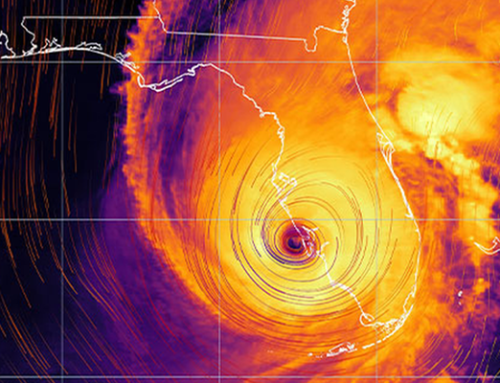By Charles Dean Smith, Jr., CPA
On November 21, the IRS announced a delay in its new $600 reporting threshold for Forms 1099-K for the 2023 year-end tax reporting. Instead, 2023 will be another transition year, giving third party settlement organizations (TPSOs) more time to adjust for the new tax reporting changes. This marks the second time the IRS has delayed the implementation of lower reporting thresholds.
An estimated 44 million Forms 1099-K were set to be released ahead of the January 31, 2024 deadline – many to taxpayers without any actual tax liability or who were confused on how to properly report the amounts on their individual tax returns
For 2023, the current reporting threshold remains in effect: $20,000 or more in qualifying receipts and more than 200 transactions.
What is the Form 1099-K?
If you use digital payment platforms or online marketplaces to sell goods or services in the normal course of doing business, the Form 1099-K details your transactions. These transactions are generally taxable … but not always. Common examples of taxable transactions include:
- Selling merchandise or gift cards
- Accepting payment for services, like professional photography or consulting work
- Trading cryptocurrency
Taxpayers who use sites like Etsy, PayPal, Venmo, Amazon, eBay, and/or certain cryptocurrency processors to sell goods and services can expect to receive Form 1099-K. Some transactions, like bona fide gifts and personal transactions between family and friends (like birthday or holiday gifts, ridesharing, or splitting the cost of a meal), are considered non-taxable transactions but could still be subject to 1099-K reporting if they exceed the threshold amounts.
Did You Know? Classification as a third party settlement organization (and thus the requirement to issue Forms 1099-K) depends somewhat on the entity’s legal structure. Zelle, a bank transfer service, is not a third party settlement organization and would not issue Forms 1099-K, whereas Venmo and PayPal are structured differently and required to comply with applicable 1099-K reporting rules.
Implementing a lower reporting threshold was meant to minimize the tax gap, or the amount of unreported or underreported tax liability. It’s a trade-off: while the IRS benefits from increased compliance, some taxpayers and TPSOs must endure a more complex tax reporting process with additional complex tax calculations and unfamiliar forms.
Phased-in Implementation of 1099-K Changes
In Notice 2023-74, the IRS stated that in addition to enforcing only the current transaction thresholds of $20,000/200 transactions, there will also be a new phased-in approach to 1099-K reporting.
- 2023 remains a transition year for TPSOs.
- 2024’s reporting threshold will be $5,000: lower than the current $20,000, but not as low as $600.
“We spent many months gathering feedback from third party groups and others, and it became increasingly clear we need additional time to effectively implement the new reporting requirements,” said IRS Commissioner Danny Werfel. “Taking this phased-in approach is the right thing to do for the purposes of tax administration, and it prevents unnecessary confusion as we continue to look at changes to the Form 1040. It’s clear that an additional delay for tax year 2023 will avoid problems for taxpayers, tax professionals and others in this area.”
One of the key areas for improvement relates to transactions between unrelated taxpayers, like selling used clothing, furniture, appliances, or other items. These transactions would generate a Form 1099-K even if the taxpayers don’t have any actual tax liability.
Another point of confusion for taxpayers could lie in the reported amounts on Forms 1099-K. TPSOs do not calculate tax owed and only report the total transaction amount(s). Taxpayers would still need to factor in any available deductions or cost basis amounts to arrive at the net taxable amount to include on their individual tax return
What’s Next?
Taxpayers whose 2023 transactions fall below current thresholds won’t see any changes for the 2024 tax season. Moving forward in 2024, the lower $5,000 reporting threshold will be in effect. In the meantime, the IRS is evaluating making more changes to the individual tax Form 1040 and related schedules. These changes are meant to make the 1099-K tax reporting and calculation process easier.
An interesting note is that the original $600 reporting threshold, which was originally introduced in 1954, has never been indexed for inflation. If it had been, the reporting threshold would be more than $6,800.
Says the National Taxpayer Advocate Erin Collins, “The IRS’s decision to delay implementation of the new Form 1099-K reporting requirements is good news for taxpayers, tax professionals, and payment processors. Equally important is the IRS’s announcement today that it will adopt a phased-in approach and only require reporting of transactions totaling more than $5,000 next year. Taxpayers and tax professionals need certainty and clarity about what is expected of them. By announcing its plans for this year and next year now, the IRS is taking steps to provide it.”
Taxpayers are still responsible for accurately and completely reporting all taxable income, regardless of how they get paid. So even if a TPSO doesn’t issue a Form 1099-K because the transactions fall below the threshold, taxpayers still must report applicable transactions on their individual tax returns, usually as business income on Schedule C (Form 1040)
Whether business transactions meet the 1099-K reporting requirements or not, taxpayers still must keep accurate, complete records. This includes information on all sales and revenue, applicable taxes, and other information related to tax liability. Year-round tax planning can take much of the burden off year-end, last-minute decisions to minimize tax liability, or worse: an unexpected, large tax bill in April.
For more specific questions about your potential 1099-K reporting requirements or how to properly report your business transactions on your individual tax return, contact your PBMares tax advisor or Tax Partner Charles Dean Smith, Jr.





